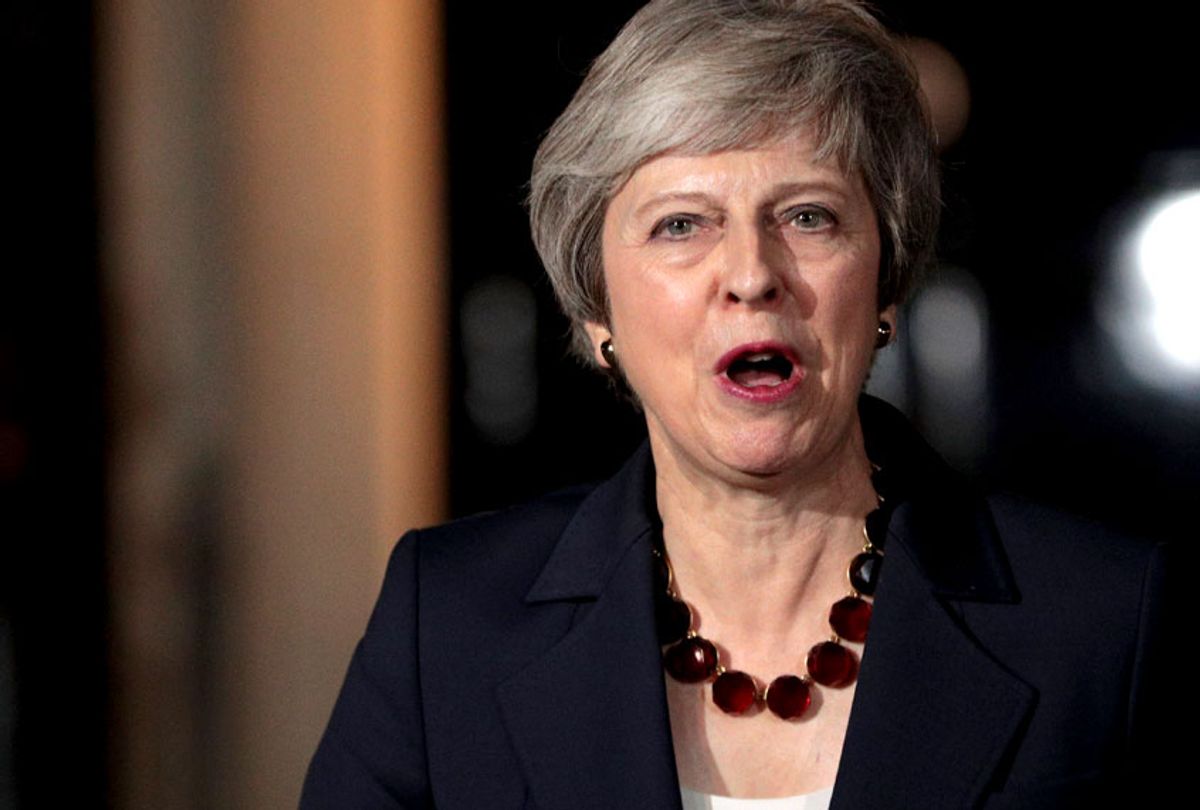Once again, Mrs May was humiliated last night as MPs rejected her proposal that the way to prevent No Deal was to accept her deal.
Gradually, one wonders whether Brexit will ever happen — not least because the EU27, led by the French President, are bound to tighten the screws on British politics.
In Brussels and elsewhere, there is a palpable sense of “better get it over with than tolerating an eternal drama.”
There is little readiness to allow for yet more time wasting by futile Brexit discussions occupying the EU agenda just because British politicians are incapable of making up their minds.
In that regard, a short extension, until just before the elections to the European Parliament may well be the very real threat to focus British minds. After all, the diddling must end at some point.
Meanwhile in British politics
Meanwhile, Prime Minister Theresa May stubbornly refuses to let the people vote again, but she insists MPs must vote again and again and again until they bow to her wishes.
At the same time, as has been clear for some time, British MPs know what they oppose — both Mrs. May’s unworkable deal and No Deal. However, they cannot agree on what they actually want.
This is how parliaments work. The government (executive) takes a lead and uses its majority of elected representatives (which allows it to be the government) to vote for the measures it judges necessary. The trouble in Britain is that the UK Parliament will not vote for the government policy.
Britain’s room of maneuver is seriously constrained now, as other EU governments have insisted an extension can only be granted if it is for a major purpose such as holding a new election or a new referendum. Both propositions have no majority today amongst MPs.
More time needed
An extension is needed to pass into law 600 technical legislative proposals called Statutory Instruments — a system of mini-laws which can be voted without the full first, second and third reading and examination by the House of Lords — all steps that are necessary to transpose EU laws into UK law.
Only 200 have been agreed so far. Hence, even at the most basic legal level, the UK is not prepared for Brexit.
For those MPs who have campaigned against the EU since the 1980s or who voted against Maastricht in 1992, even Mrs. May’s deal implies a deeper relationship with the EU than they can accept.
They are also suspicious that once the EU and UK begin a “Brexeternity” of negotiations, the outcome may be a Norway or EEA final arrangement — in other words, a political Brexit, but not an economic, trade and social Brexit.
May will not bend
Mrs. May, for her part, will not bend. She could do so by seeking a compromise with the opposition parties (Labour, Liberal Democrats, Scottish nationalists). The best way to accommodate their concerns would be by, for example, adding staying in the Customs Union or even the Single Market membership to her deal.
Unfortunately, Mrs. May remains ever intransigent. She is determined to continue the contemptuous way in which she has treated all MPs other than Tory loyalists.
That contempt is the main reason why, contrary to the Prime Minister’s hopes that she may get lucky passing “her” deal upon a third try in parliament, the opposition parties will maintain their vote against the deal.
So the odds are that the 29th March deadline goes by — and the UK is still in Europe. But the day of reckoning — after which all the UK’s parliamentary procedure delay artists run out of any wiggle room — may well be May 23, 2019.
This article is republished from The Globalist: On a daily basis, we rethink globalization and how the world really hangs together. Thought-provoking cross-country comparisons and insights from contributors from all continents. Exploring what unites and what divides us in politics and culture. Follow us on Facebook and Twitter. And sign up for our highlights email here.


Shares